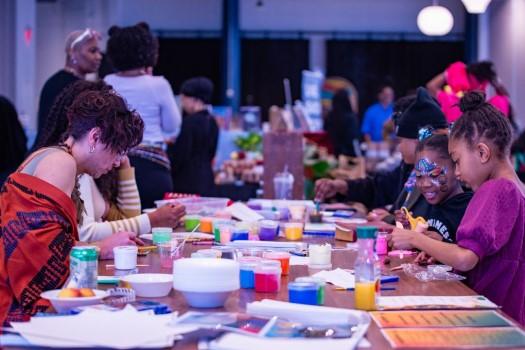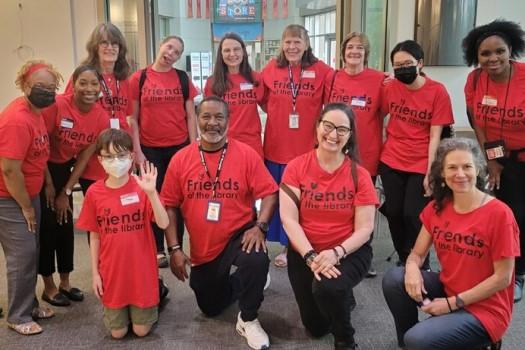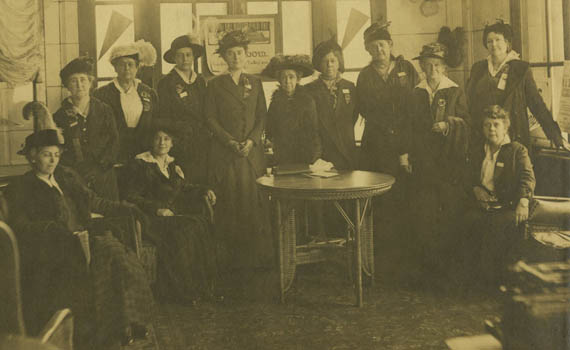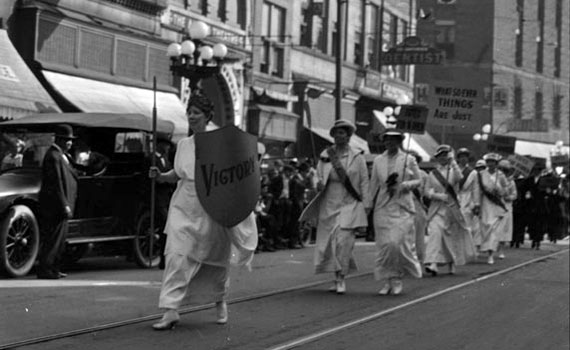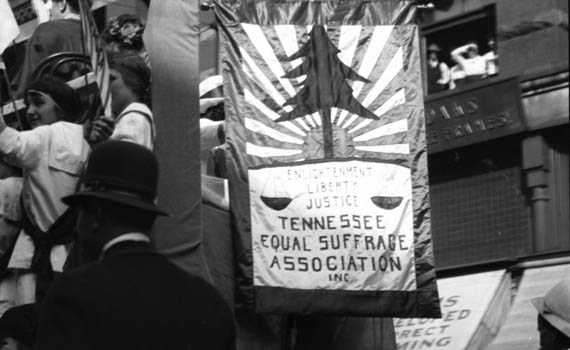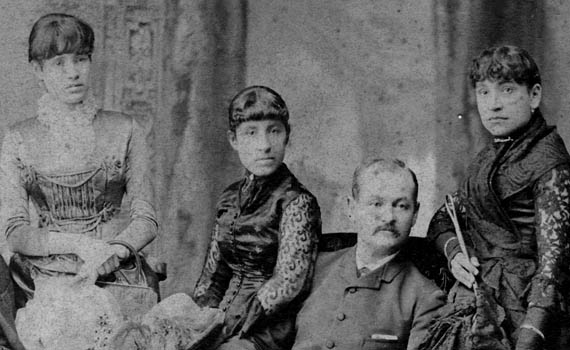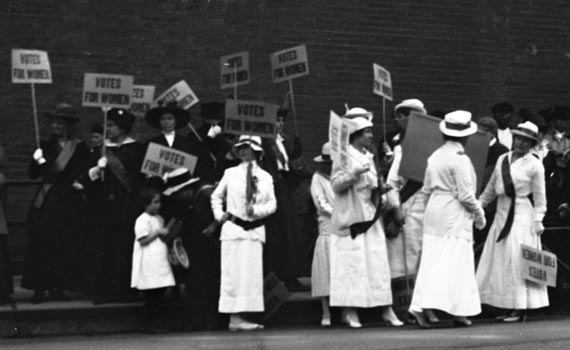Votes for Women
Celebrating the 100th Anniversary of the Nineteenth Amendment.
Women’s Suffrage in Memphis and Beyond
“Do not despair, but just travel on towards the dawn of full liberty and freedom of thought and life…”
— Martha E. Allen from Report for 1916 State Convention at Nashville, Tenn.
The battle for american women’s right to vote
August 26, 2020 marks 100 years since Secretary of State Bainbridge Colby certified the ratification of the Nineteenth Amendment, officially enshrining in the U.S. Constitution the amendment that guarantees “the right of citizens of the United States to vote shall not be denied or abridged by the United States or by any State on account of sex.” As we celebrate the centennial anniversary of this major milestone, we also reflect on the decades-long struggle by suffragists in Memphis, the state of Tennessee, and across the nation.
“How can anyone who is able to use reason, and who believes in dealing out justice to all God’s creatures, think it is right to withhold from one-half the human race rights and privileges freely accorded to the other half, which is neither more deserving nor more capable of exercising them?”
Mary Church Terrell from Votes for Women: A Symposium by Leading Thinkers of Colored America, 1915.
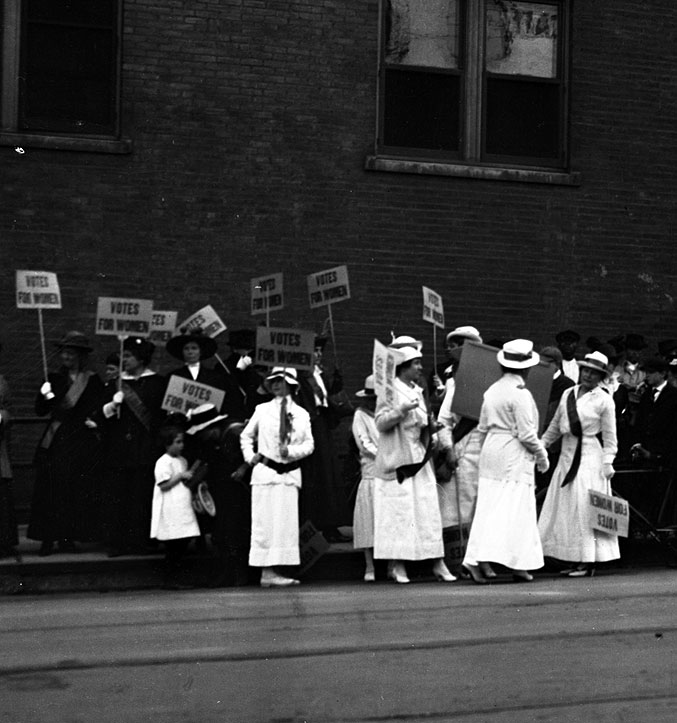
We celebrate Women’s Equality Day on August 26th to commemorate Colby’s certification of the Nineteenth Amendment, but for many Americans, August 18th was the day that truly mattered. On that day, the state legislature of Tennessee voted in favor of ratifying the Susan B. Anthony Amendment, making Tennessee the pivotal 36th state required to amend the U.S. Constitution, granting women the right to vote across the nation. The close vote was decided when Harry Burn, on the advice of his mother, switched his vote to support ratification, thereby breaking a deadlocked House and passing the resolution.
The vote on the House floor was the culmination of a years-long struggle to influence local representatives and everyday citizens alike. The tireless efforts by suffragists included countless parades, rallies, marches, flags, buttons, and banners. Faced with periodic setbacks, local suffrage leader Martha Allen reminded activists that even during times of “seeming failure, I think it was grand educational movement all over the state. Those signs, as in Memphis and other cities, in windows, on business streets, helped to awaken thought and questions on the subject of Constitutional needs.”
This online exhibit highlights the role that Memphians and Tennesseans played in advancing the cause of women’s suffrage and in securing the ratification of the Nineteenth Amendment. Included are newly digitized material from our manuscript collections, like the J.B. Mann Suffrage Collection and the papers of Senator Kenneth D. McKellar. These primary sources bring to life the emotions and experiences of the women’s suffrage movement, and allow you to take a trip into the past. Begin your journey by exploring the featured topics below!
In the Bluff City
As the state’s largest city, Memphis played a major role in getting the 19th Amendment ratified by the State of Tennessee. Local suffragists had been laying the groundwork for decades, slowly carving out a role for women in the city’s political life. By 1920, Memphis became the main bastion of support for suffrage within the state during the fight for ratification.
Struggle in Washington
Introduced in the United States Congress in 1878, the proposal that eventually became known as the Susan B. Anthony Amendment (and today, the Nineteenth Amendment) quickly disappeared into the recesses of a Senate committee. For the next four decades, it lingered neglected with little to no action taken on the measure in Congress.
Road to Ratification
At first, the amendment breezed through state legislatures; however, there were defeats, mostly in the South. Georgia was the first state to reject ratification, with others soon following their lead. To stop the defeats, prominent suffragists like Carrie Chapman Catt and Alice Paul went on the offensive, dispatching teams of organizers to states that were slow to ratify.
Fight in Nashville
With Tennessee back in play, political forces from all sides bore down on Nashville, focusing intense political pressure on the state legislature who could ultimately decide whether to give women across the country the ballot or not.
Suffrage and Race
The movement for women’s suffrage was born out of the fight against slavery. Female abolitionists saw an opportunity for the country to grant both African Americans and women the right to vote. Unfortunately, the amendments enacted during reconstruction defined voting rights as belonging to “male citizens”, a political choice that contributed to a break between the two movements.
More Resources
The passage of the Nineteenth Amendment was a major milestone in the struggle for voting rights, but the movement didn’t end there. Click here to learn more about the suffragists who committed themselves to fighting for a more perfect union and explore how we can honor their legacy by participating more fully in our democracy.



